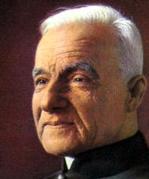Fathers of the Church
Epistle XLIII: to Marinianus, Bishop
by Gregory the Great in 590-604 | translated by James Barmby, D.d
Gregory to Marinianus, Bishop of Ravenna.
It has for some time reached us from the report of many that the monasteries constituted in the district of Ravenna are everywhere aggrieved by the domination of your clergy; so that—grievous to be said—under the pretext of government they take possession of them as if they were their own. Condoling in no small degree with these monasteries, we sent letters to your predecessor bidding him correct this evil. But, seeing that he was soon overtaken by the close of life, we remember having written in like manner to your Fraternity, lest this burden on the monasteries should continue. And because, as we have discovered, there has been loitering so far in the correction of this thing, we have thought fit to address you a second time by this letter. We exhort you, then, that, putting aside all delay and all excuses, you so study to relieve these monasteries from this kind of grievance that clerics, or such as are in sacred orders, may henceforth have no leave of access to them on any other ground except only for the purpose of praying, or if perchance they should be invited for solemnizing the sacred mysteries of mass. But, lest haply the monasteries should sustain a burden through the promotion of any monk or abbot, you must take care that, if any of the abbots or monks of any monastery should accede to any clerical office or sacred order, he shall have, as we have said, no power there any longer, lest under cover of this occasion the monasteries should be compelled to sustain the burdens which we prohibit. Let not your Holiness, then, after this second admonition, delay correcting all this with vigilant care, lest, if we should after this perceive you to be negligent (as we do not believe will be the case), we be compelled to provide otherwise for the quiet of the monasteries. For be it known to you that we will no longer suffer the congregations of the servants of God to be subjected to such requirements. Lest, however, any excuse should be put forward with regard to the monks, let your Fraternity without fail send hither such person as you may see to be serviceable, and we will depute monks to go with him to you, to provide for whom you must place them in monasteries, if indeed there are among you places such as may afford them a maintenance.
Taken from "The Early Church Fathers and Other Works" originally published by Wm. B. Eerdmans Pub. Co. in English in Edinburgh, Scotland, beginning in 1867. (LNPF II/XII, Schaff and Wace). The digital version is by The Electronic Bible Society, P.O. Box 701356, Dallas, TX 75370, 214-407-WORD.






